Mobilité OUT
La Haute école de gestion de Genève s’est fixée une vocation internationale, d’où son engagement dans un processus de développement de ses coopérations et de ses partenariats au niveau mondial.
- Conditions et destinations par filière
- Procédures d'inscription
- Summer & Winter school
- Témoignages
- Expérience internationale post Bachelor
Conditions et destinations par filière
La HEG-Genève compte plus de 150 partenaires universitaires, répartis dans une quarantaine de pays. Elle offre la possibilité de partir en mobilité dans une filière équivalente.
Choisir sa destination
Vous souhaitez effectuer une mobilité ou réaliser un double diplôme à l’étranger ?
Référez-vous au guide mobilité de votre filière pour vérifier les conditions applicables et sélectionner la destination qui vous correspond :
Consultez nos fiches d’informations, disponibles pour chaque université partenaire.
Participez à la séance d’information sur les mobilités internationales, organisée au début de chaque semestre.
Passez à notre Bureau Mobilité (B1.05) pour obtenir des renseignement complémentaires.
- Horaires d'ouverture : 9h - 12h / 13h -15h.
Mobilité au Canada
MAPLE - Mobility and Academic Program for Learning Exchange - effectif dès la rentrée 2026-2027 :
Le programme MAPLE, proposé par la HES-SO, vous permet de partir en échange au Canada et de bénéficier d’un choix de partenaires privilégiés.
Pour une participation au programme MAPLE sur l’année académique 2026/27, vos dossiers de candidature doivent parvenir à la HES-SO, au plus tard le 31 janvier 2026.
Procédures d'inscription
Comment procéder ?
Vous avez fait votre choix de destinations et vous vous êtes renseigné sur les spécificités de votre filière et des universités que vous avez retenues.
Vous pouvez maintenant concrétiser votre projet en cinq étapes :
1. Dépôt de candidature
Les dossiers d’inscription sont déposés et traités durant la période d’inscription du semestre précédant l’échange. Nous ne réservons pas de places à l’avance, il est par conséquent inutile de nous soumettre un dossier de candidature avant la période officielle.
- Pour le semestre d'automne 2026 ou l'année académique 2026-27, les inscriptions seront ouvertes du lundi 16 février 2026 au lundi 16 mars 2026.
- Pour le semestre de printemps 2027, les inscriptions seront ouvertes du lundi 31 août 2026 au lundi 5 octobre octobre 2026.
Certaines universités ont un délai d’inscription anticipé. Veuillez consulter la liste (non exhaustive) de nos partenaires ayant un délai de candidature anticipé. Nous vous conseillons vivement de vérifier par vous-même les délais de nomination des universités qui vous intéressent même si elles ne figurent pas dans cette liste afin de ne pas dépasser le délai et de nous informer au plus vite si vous constatez un délai anticipé par rapport à notre délai (attention c'est la "nomination deadline" qui compte et non pas l'"application deadline").
Un test de langue peut également vous être demandé par l’université partenaire. Le cas échéant, veillez à effectuer les démarches à l’avance.
2.Constituez et déposez votre dossier de candidature au Bureau mobilité (B1.05)
Seuls les dossiers complets, amenés personnellement à notre Bureau Mobilité, seront pris en considération.
Le dossier papier doit contenir :
- Notre Formulaire d'inscription de la HEG, dûment complété à l'ordinateur, avec 3 destinations ;
- Notre Charte de Mobilité dûment complétée et signée ;
- Une lettre de motivation par destination adressée à la HEG afin de pouvoir départager les meilleures candidatures et votre réelle motivation (max. 1 page par lettre, rédigée en français ou en anglais) ;
- Votre dernier bulletin de notes officiel ou relevé de notes AGE/IS-Academia, ainsi qu'une version traduite en anglais (EE, IG, IS) ;
- Un curriculum vitae, rédigé en français ou en anglais ;
- Une copie de votre passeport (carte d'identité non acceptée).
Nous vous demandons également de nous envoyer les 2 premiers documents (formulaire et charte) par mail et en format PDF, après le dépôt de candidature.
Une sélection a lieu si le nombre de candidat-es dépasse le nombre de places disponibles dans l'institution d'accueil. Veuillez ne pas prendre contact ou vous inscrire directement auprès de l’université partenaire avant d’avoir été officiellement sélectionné-e par la HEG.
Une fois les places attribuées, vous recevrez un mail de confirmation contenant la marche à suivre pour finaliser votre inscription.
3. Effectuez les démarches indiquées par l’institution d’accueil
Si vous êtes accepté-e par la HEG pour l’une des universités choisies, nous enverrons une nomination officielle à l’université partenaire qui vous fera parvenir des indications supplémentaires sur une éventuelle procédure d’inscription au sein de leur établissement.
4. Remplissez notre Learning Agreement à l'aide du plan de cours de l'université pour laquelle vous avez été sélectionné-e :
5. Remplissez et signez la déclaration de bourse que nous vous transmettrons en temps voulu.
Il ne vous reste plus qu’à planifier votre séjour (budget, logement et réservation des billets pour votre voyage, etc).
Informations pratiques
Visa
Si vous êtes suisse, vous n'avez pas besoin de visa pour entrer dans les pays de l'UE/AELE. Un passeport ou une carte d'identité valables sont en principe suffisants. Si vous êtes un ressortissant étranger domicilié en Suisse, adressez-vous à la représentation compétente de votre pays de destination en Suisse (ambassade ou consulat).
Pour de nombreux pays hors Union Européenne, l’obtention d’un visa d’études est une condition préalable au départ. Renseignez-vous auprès de l’ambassade ou du service consulaire de votre pays de destination.
Attention, un visa d’études a un coût et nécessite parfois un voyage à Berne. La procédure peut prendre plusieurs mois !
Vérifiez enfin que votre passeport soit valable au moins 6 mois après la fin de votre séjour à l’étranger.
Assurance maladie
Avant votre départ, renseignez-vous auprès de votre assurance maladie afin d’obtenir une couverture médicale à l’étranger. Si nécessaire, concluez un supplément d’assurance pour la durée de votre séjour et demandez un certificat d’assurance que vous devrez probablement présenter à votre université d’accueil.
Bourses
Dans le cadre des mobilités internationales et des accords de collaboration signés entre la HEG-Genève et les universités partenaires, un soutien financier peut être accordé aux étudiant-es, pour autant que le séjour ait une durée d’un ou deux semestres et se déroule dans une université ne percevant pas de taxes d’écolage.
Ce soutien financier ne couvre que les frais de séjour tels que repas, transports, livres d’école et logement.
Les étudiant-es sélectionné-es restent immatriculé-es à la HEG-Genève et paient la taxe d’écolage semestrielle à Genève.
Le financement des mobilités européennes est assuré par la Confédération suisse. Le financement des mobilités hors européennes est assuré par la HES-SO. Les demandes de bourse sont gérées par le service des Relations internationales de la HEG-Genève.
Les avantages acquis grâce à une mobilité sont nombreux :
- L'immersion dans une culture différente et la découverte de nouvelles pratiques académiques et sociales ;
- Le développement et le perfectionnement des compétences linguistiques dans un contexte international ;
- La reconnaissance et la compatibilité du diplôme dans l'ensemble des pays signataires de l’Accord de Bologne ;
- L'accès à une offre de cours diversifiée, reflétant des approches pédagogiques et des perspectives internationales ;
- La valorisation du profil académique et professionnel, les employeurs appréciant particulièrement les parcours enrichis par des expériences internationales.
Summer & Winter school
Vous avez envie de voyager, d’apprendre une nouvelle langue ou tout simplement de perfectionner vos connaissances dans certains domaines ?
Les programmes Summer & Winter school sont faits pour vous !
Les programmes Summer & Winter school sont des cours organisés par certaines universités durant l’été ou l'hiver (en général en février). Ces cours se déroulent sur une courte période qui varie selon l’établissement et qui vous permet de faire un petit voyage linguistique dans une université étrangère.
Ces programmes ne sont ni pris en charge par la HEG, ni financé, et si l’un d’entre eux vous intéresse, c'est à vous de faire les démarches nécessaires pour y participer.
Les coûts varient d’une université à l’autre et sont à votre charge.
Les crédits ECTS obtenus durant ces cours ne peuvent malheureusement pas être pris en compte dans votre cursus à la HEG.
Sur cette page nous vous exposons les possibilités de destinations qui offrent ce genre d’expérience et vous laissons le choix d’y participer ou pas.
Vous trouverez les liens des formulaires d’inscription pour certaines universités en bas de la page. Des liens pour des informations complémentaires y figureront aussi. Les autres documents qui ne sont pas présents sur cette page sont disponibles au bureau des relations internationales - Bâtiment B, bureau B1.05, ouvert tous les jours de 9h à 12h et de 13h à 15h.
Destinations disponibles
Belgique
Corée du sud
Espagne
Etats-Unis
Finlande
France
Grèce
Irlande
Italie
Lettonie
Lituanie
Malaisie
Portugal
Slovénie
Témoignages
Allemagne
Angleterre
Australie
Belgique
Canada
Corée du Sud
Croatie
Elsa Kurti
EE, 2023/2024University of Split
Mon séjour Erasmus à Split a été une expérience inoubliable qui m’a permis de grandement m’ouvrir au monde. Dès mon arrivée, j’ai été accueilli par une communauté dynamique d'étudiants venant de tous horizons : des États-Unis, de l'Espagne, du Portugal, de la France, de l'Allemagne, de la Turquie, et bien d'autres pays encore. Cette diversité culturelle a enrichi mon expérience, me permettant de découvrir différentes perspectives et de nouer des amitiés internationales.
L’intégration a été facile et rapide, grâce au groupe Erasmus local qui organisait régulièrement des sorties, des soirées, et diverses activités. Ces événements étaient l’occasion idéale pour créer des liens avec d'autres étudiants et découvrir la ville dans une ambiance conviviale. Grâce à ces initiatives, je me suis rapidement senti chez moi à Split.
Durant ces quatre mois, j’ai eu la chance de visiter presque toute la Croatie, un pays aux paysages époustouflants et à la riche histoire. De Zagreb à Dubrovnik, en passant par les lacs de Plitvice, chaque endroit que j'ai exploré m'a émerveillé par sa beauté. Les pays voisins, comme la Slovénie et la Bosnie-Herzégovine, étaient également à couper le souffle et facilement accessibles depuis Split, ajoutant encore plus de diversité à mes voyages.
Sur le plan académique, les professeurs étaient très accessibles et les cours étaient non seulement instructifs, mais également agréables à suivre. Le système éducatif à Split m'a permis de m'adapter sans difficulté et d'enrichir mes connaissances dans un cadre détendu et stimulant. La ville de Split elle-même est un joyau. Son centre historique, ses plages magnifiques, et ses paysages environnants en font un lieu exceptionnel pour vivre et étudier. Tout est à portée de main, et bien que les transports en commun soient peu coûteux et que les services comme Uber soient abordables, j'ai rarement eu besoin de les utiliser. En quatre mois, je n’ai pris le bus que cinq fois, ce qui montre à quel point tout est accessible à pied.
Cependant, tout n'a pas été parfait, notamment en ce qui concerne mon logement. J'ai loué un appartement de 50 mètres carrés pour 550 euros par mois, situé près de la ville. Bien que l'emplacement et la taille de l'appartement étaient convenables, j’ai eu une très mauvaise expérience avec ma propriétaire, Viki Stanisic. Malheureusement, elle m'a presque retenu la totalité de ma caution, qui s'élevait à un mois de loyer. J’avais trouvé ce logement via l’agence Eurovila, et je conseille fortement à toute personne de se méfier de cette propriétaire. Il est essentiel de bien vérifier les conditions de location avant de s’engager.
En conclusion, mon séjour à Split a été une aventure incroyable, pleine de découvertes, de rencontres enrichissantes, et de moments inoubliables. Malgré le souci rencontré avec mon logement, je garde un excellent souvenir de cette expérience qui m'a non seulement permis de m'épanouir personnellement, mais aussi de découvrir une partie magnifique de l'Europe.
Espagne
Etats-Unis
Finlande
Grèce
Hongrie
Japon
Mexique
Pays-Bas
Portugal
Turquie
Expérience internationale post Bachelor
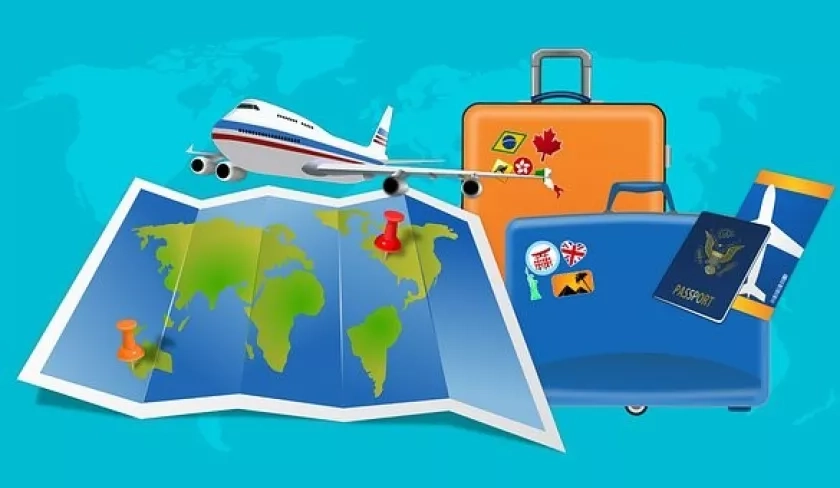
Vous avez envie de vivre une expérience international après vos études?
Plusieurs établissements à l'étranger proposent des programmes de cours et/ou de stages après l'obtention de votre Bachelor.
La HEG n'est pas responsable de la gestion de ces programmes et si l'un d'eux vous intéresse, vous pouvez vous inscrire librement.
Sur cette page nous vous exposons les possibilités de destinations qui offrent ce genre d'expérience.
Cette rubrique est nouvelle et évoluera selon les offres que l'on reçoit.
Europe
EURES (EURopean Employment Service)
Réseau de coopération entre les services publics de l'emploi de l'Union Européenne et ceux des États membres de l'Association européenne de libre-échange.
Graduate School of Economics and Management
Bourse d'excellence
Hors Europe
États-Unis
Bourse
Hong Kong
Bourse
International College of Management Sydney (ICMS)
Pour plus d'informations et les inscriptions, contactez le service des Relations internationales de la HEG-Genève.
Konkuk University - Seoul, South Korea
Full semester internship programme
Manhattan Institute of Management
3 mois de cours suivis de 3 mois de stage dans une institution financière à Wallstreet, NYC.
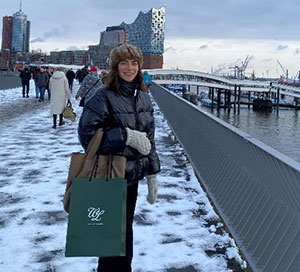
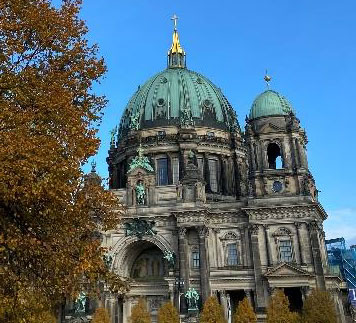
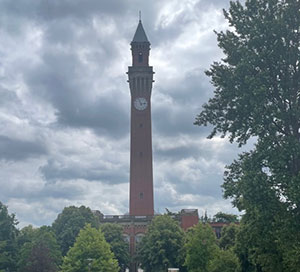
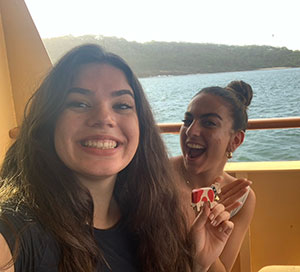
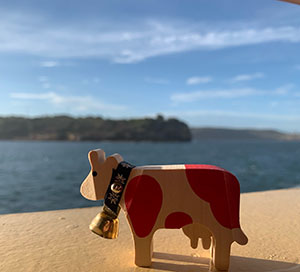

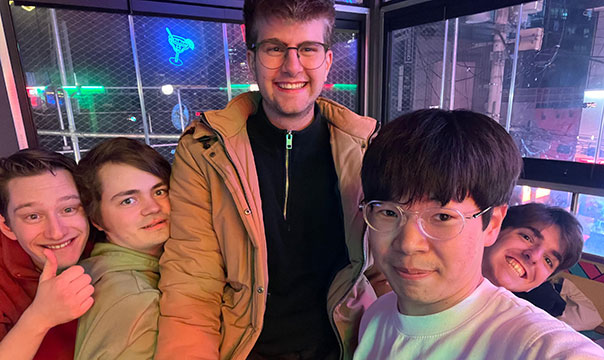
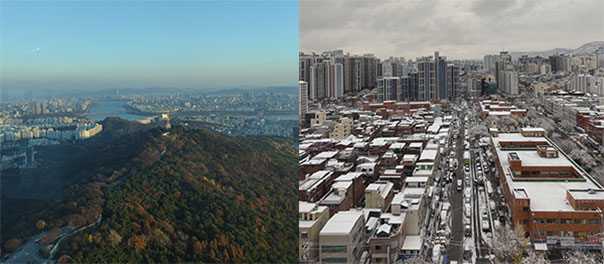

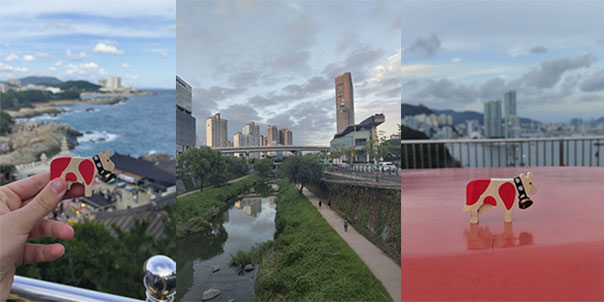
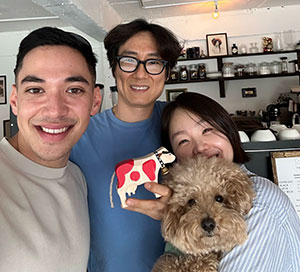
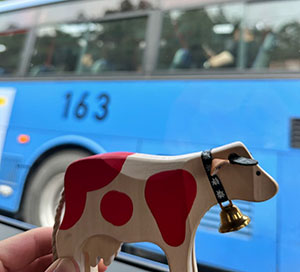
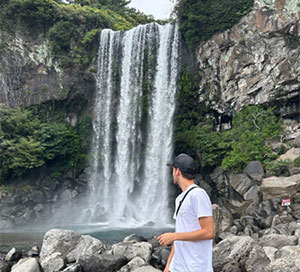
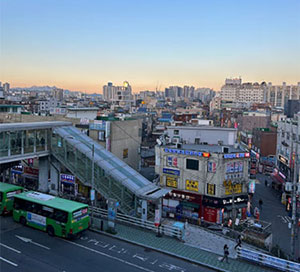
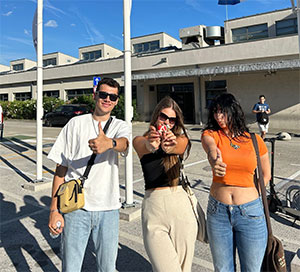
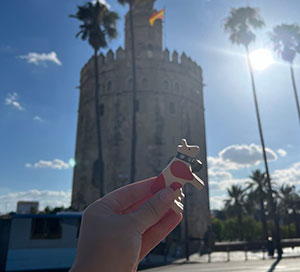
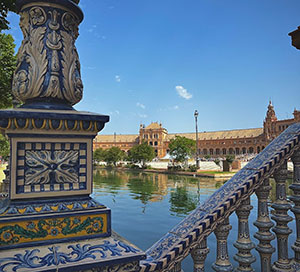
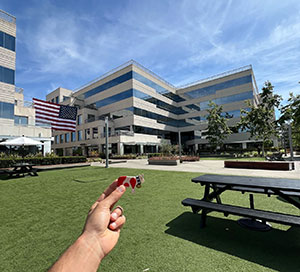
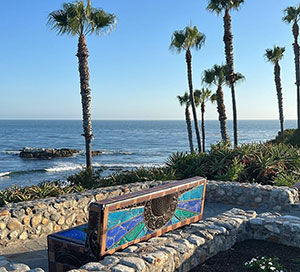
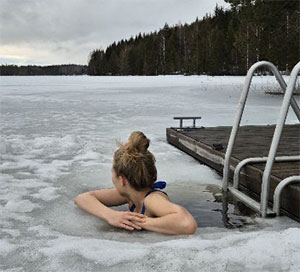
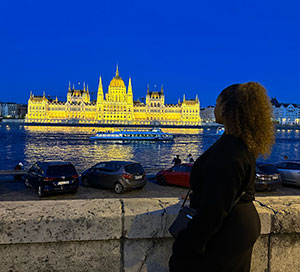
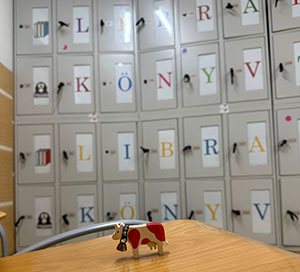
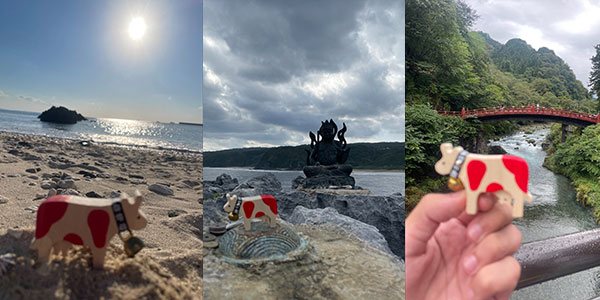
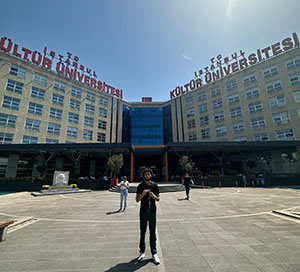
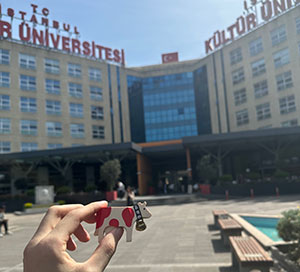
 Contact
Contact Évènements
Évènements